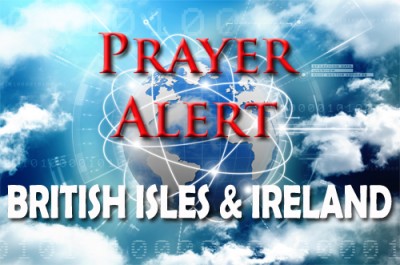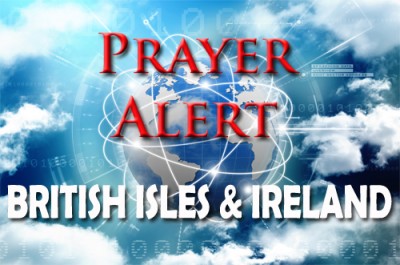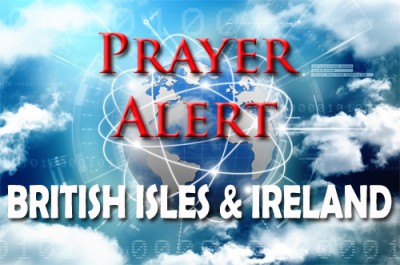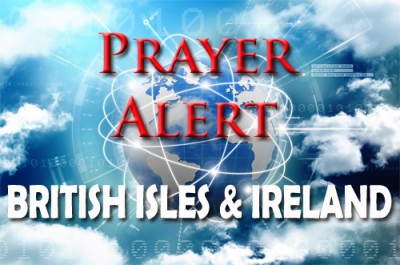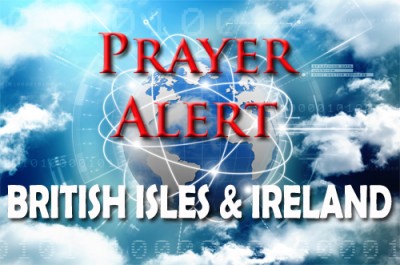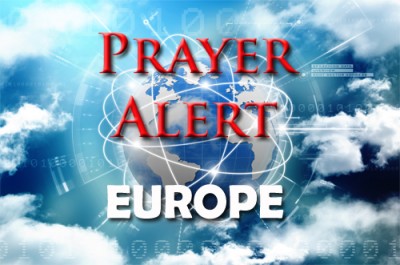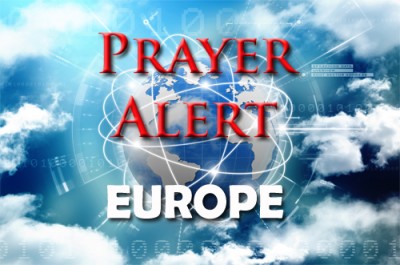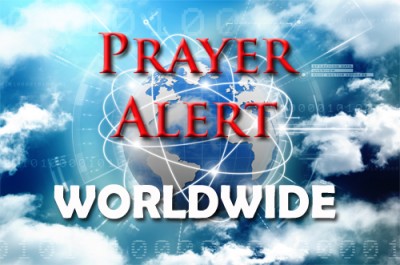2019: potential agriculture labour shortage
21 Dec 2018Machines can replace human hands in some farming but not when harvesting many types of fruit or vegetables. Growers rely heavily on people for all these jobs in season and out of season. It might be possible to reduce seasonal labour by investing in mechanisation for some crops; however hand picking is currently the only option for quality of produce to meet consumer demand. Just 1% of seasonal farm workers are British. Most come from Eastern Europe, but with the end of free movement, growers could have to look even further for labour. Africa, Asia? Already, labour shortages have left produce rotting in fields and polytunnels. As Britain prepares for free movement of people to end, farmers are anxiously saying, ‘Who will pick the crops next spring? Brits won’t do it.’
Pray for our prodigals
21 Dec 2018Tens of thousands of people have prodigal family members. The dictionary defines a prodigal as extravagant, a big spender. The word describes the son in the well-known parable: does it also describe the Father, who threw a great extravagant feast in honour of to his errant son? You might empathise with him; he loves his son but has not seen him in many months and is worried about his adventure in the big, wide, often dangerous world. Fathers, mothers and siblings of prodigals know the deep ache as they pray for them to come back to Jesus. Prodigals are on God’s heart. Ask Him to prompt families to know when to open a reconciling conversation, and when to remain silent. May there be strengthened relationships so that people draw closer together.
Homeless people's deaths up 24%
21 Dec 2018597 homeless people died in England and Wales in 2017, compared to 482 in 2013. 84% of this figure were men, and over 50% were because of drug poisoning, liver disease caused by alcohol abuse, or suicide (also known as the diseases of despair). The average age of death was 44 for men and 42 for women. Homeless charities say pressure on their services is increasing. The director of Shelter called the deaths a source of national shame, ‘a consequence of a housing system which fails too many people’. The CEO of Crisis called on the Government to fix the root causes of homelessness - building more social homes and a welfare system to support people who fall on hard times.
Drones cause chaos at Gatwick
21 Dec 2018Gatwick Airport reopened on 21 December, after drones caused it to shut down for 40 hours. Thousands of passengers remain stranded, while police have not yet found the operator, who could be an environmental activist. The airport could not operate while the drones were in flight in case they hit and damaged a plane. There is no evidence at present that the disruption was terror-related. Transport secretary Chris Grayling said the situation was unprecedented, and ‘lessons need to be learned’. In 2013 there were no incidents involving drones, whereas in 2018 there have been well over 100. In June a drone came within ten feet of a Virgin Airways plane carrying 260 people. Mr Grayling said the Government was looking to go further with drone control, including considering age-limits for users.
Important role of cyber security
21 Dec 2018Unfortunately cybercrime is increasing. We are twenty times more likely to be robbed while at our computer by overseas criminals than in the street. On 18 December a new security operations centre for Belfast was announced. Businesses with highly connected personal devices, cloud use and rapidly advancing technology are increasingly at risk: see https://www.businesscloud.co.uk/news/capita-unveils-major-cyber-security-investment The National Cyber Security Centre (NCSC) is a government organisation providing advice and support for the public and private sector about how to avoid computer security threats. NCSC works closely with educators and researchers to build a cyber-savvy workforce of the future and enhance the UK's knowledge. Pray for NCSC in 2019 as it implements innovative cyber security and support teaching initiatives after Brexit.
Protests and demonstrations
21 Dec 2018For days, thousands of Hungarians have demonstrated against the rule of prime minister Viktor Orban (see ). Opposition parties, student groups and civilians object to two new laws: one allows employers to ask for up to 400 hours of overtime work per year, and the other has set up a parallel judicial system which will severely undermine judicial independence. A Budapest-based research group observing the protests said there is a committed opposition against the government, and it could be the starting point of a broader movement. Meanwhile, French 'yellow vest' protesters have demonstrated for five consecutive Saturdays against President Macron’s rule. The movement was initially against fuel taxes, then education reforms, and now many issues bring them to the streets, even though their protests have forced the government to adjust its economic course. Also, the UN migration pact has brought thousands of demonstrators on marches in Brussels near major EU facilities, amid fears that it could lead to an increase in immigration.
Ukraine: birth of new church brings violence
21 Dec 2018Young men brought clubs and brass knuckles to Pechersk Monastery in Kiev, intent on disrupting worship. Police spread-eagled them against a wall depicting centuries-old frescoes of saints, then hauled them away. Meanwhile at a small church in the centre of Kiev, a dozen men organised round-the-clock guard duty against nationalist radicals making their third attempt in a year to seize their place of worship. These incidents underline Ukraine’s potent, possibly explosive mix of politics, religious faith, and national identity that is emerging in the creation of an Orthodox church of its own. There are deep concerns about what will happen to the 12,000 churches and their property in the church split. The war between Ukrainian forces and Russia-backed separatists, which has killed 10,000+ people, has increased hostility towards the Moscow Patriarchate churches. With such passions on both sides, it is feared that more violence between the two sides lies ahead.
Faith for 2019
21 Dec 20182018 has been a year of great triumphs and unimaginable tragedies. We have seen both incredible good and unfathomable evil. We have witnessed miracles and seen suffering. But as we look ahead, we remember and proclaim that God is sovereign over every corner of the globe. He alone is the hope of 2019 - the Hope of the Nations. Though some situations may seem hopeless, we recognise and rejoice that He reigns ‘far above all rule and authority, power and dominion, and every title’, and that ‘all things are under His feet’ (Ephesians 1:21,22a). Nothing is impossible for Him. God reigns, and is moving today all over the world!
